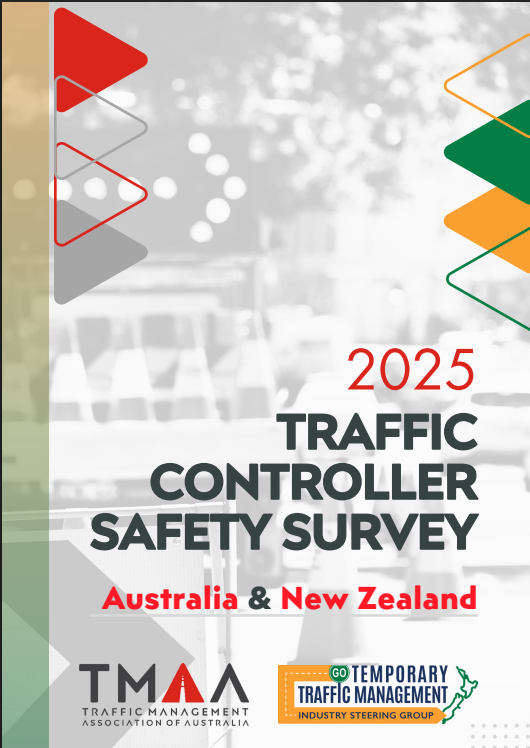Road Worker Survey Report Media Release
Media Release from the TTM-ISG
New Zealand Road Workers Report Concerning Levels of Abuse and Infringements
October 21st – Over sixty percent of New Zealand road workers experience verbal abuse every week and one fifth have experienced physical assault while on the job, findings from the first trans-Tasman road worker safety survey show.
Nearly 700 New Zealand road workers from across the country responded to the survey, which included New Zealand for the first time. The survey questioned workers on their perception of safety, levels of abuse, assault, and near-misses involving speeding and distracted drivers.
“Road workers are an essential workforce for New Zealand, facilitating the maintenance and creation of our crucial infrastructure needs. Their work keeps road users safe and informed about disruption and hazards, but it involves significant risk for them on a day-to-day basis.
“These findings show that the very people responsible for our safety and efficiency around road works are themselves being put in unsafe situations at an unacceptable level,” says Darren Wu, Chair of the Temporary Traffic Management Industry Steering Group (TTM-ISG), partners in leading the survey.
“Sixty-five percent of respondents reported drivers refusing to stop at least once a week. Not only does this put workers and road users at risk but can contribute to greater delays and disruption.
“Half of workers have experienced near misses from distracted drivers or speeding vehicles and four percent of respondents reported being struck by a vehicle in the past twelve months.
“This behaviour is unacceptable and may lead to greater interventions and enforcement being needed to keep the roadway safe,” says Darren Wu.
According to Ministry of Transport records, there were 356 deaths and serious injuries at roadworks sites between 2019 and 2023, 42 fatalities and 314 seriously injured. Over 95 percent of that number were road users[KR1] [SM2] themselves, including drivers, their passengers, cyclists and pedestrians.
“Many incidents at worksites involve vehicles leaving the road, suggesting speeding or failure of drivers to follow the guidance of road workers and signage, resulting in poor decisions and loss of control,” says Darren Wu.
“The way people respond to road workers and the controls in place is a crucial factor in how safe work sites are for everyone. Respecting both workers and controls not only keeps people safe but can make for a smoother, less disrupted journey.”
The survey report’s findings add complexity as the sector is making significant changes in its approach to temporary traffic management, under the New Zealand Guide to Temporary Traffic Management (NZGTTM) introduced in 2023. This new approach is expected to achieve greater efficiencies and reduced disruption.
“With a once in a generation change, the sector is transitioning to a risk-based approach to temporary traffic management, away from a compliance-based practice, which was in place for almost 20 years,” says Darren Wu.
“This change represents a great opportunity to improve efficiency and reduce excessive temporary traffic management, something we know the public want to see. We are seeing examples of this already happening, with innovative approaches and new technologies being employed.
“These benefits will be better realised if those planning and managing road works sites can trust there to be a high level of compliance, with road users respecting the signage and works,” says Darren Wu.
“We understand public frustration that comes from detours, delays, and lack of information around road works; however, people need to remember there is a real person behind the cone or stop / go paddle. They are out on our roads to protect us and keep traffic moving, they deserve to feel safe while at work.”
The survey was led by the Traffic Management Association of Australia in partnership with the TTM-ISG. The TTM-ISG is comprised of representatives from the sector including central and local government, contractors, planners and industry bodies.
To address the report’s findings the TTM-ISG is forming a working group including the NZTA, Worksafe, Police, ACC, CCNZ and the AA to act on the report’s recommendations which include trial and adoption of technology solutions, greater education, and enforcement. The new guide to temporary traffic management, the NZGTTM’s greater adaptability for road work site design and will help accelerate these efforts.
----Ends
DOWNLOAD THE REPORT HERE
Media requests for more information, interviews or quotes should be sent to Simon McManus


